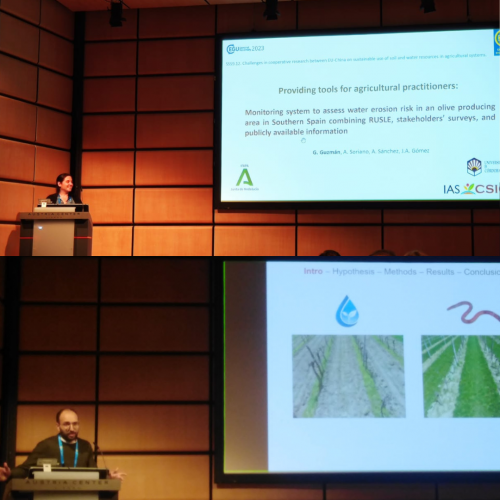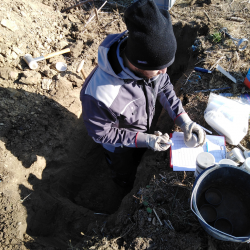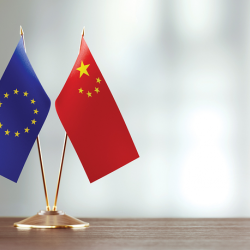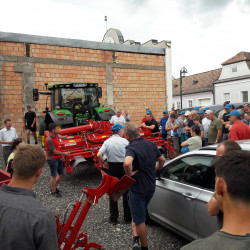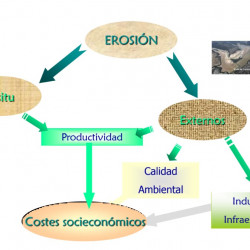TUdi presents innovative solutions for sustainable agriculture at EGU 2023
TUdi's project partners recently attended the European Geosciences Union (EGU) 2023 conference, where they presented their latest research findings on sustainable soil and water resource management in agricultural systems.
The coordination team of the TUdi project from IAS-CSIC, including project coordinator Jose A. Gomez, project manager Gema Guzman, and Jose Antionio Munoz, presented three abstracts, which were well-received by the attendees. The first abstract, titled "Providing tools for agricultural practitioners: Monitoring system to assess water erosion risk in an olive producing area in Southern Spain combining RUSLE, stakeholders’ surveys, and publicly available information" showcased a novel approach to assessing water erosion risk in an olive-producing area in Southern Spain. The second abstract, titled "Trapping efficiency of vegetative barriers in agricultural landscapes. An operational model from a review of available information" presented an operational model for vegetative barriers in agricultural landscapes. Finally, the third abstract, titled "A standardized, hybrid, field guide for appraising water erosion risk by practitioners in multiple woody crops and environments" introduced a standardised field guide for appraising water erosion risk in multiple woody crops and environments.
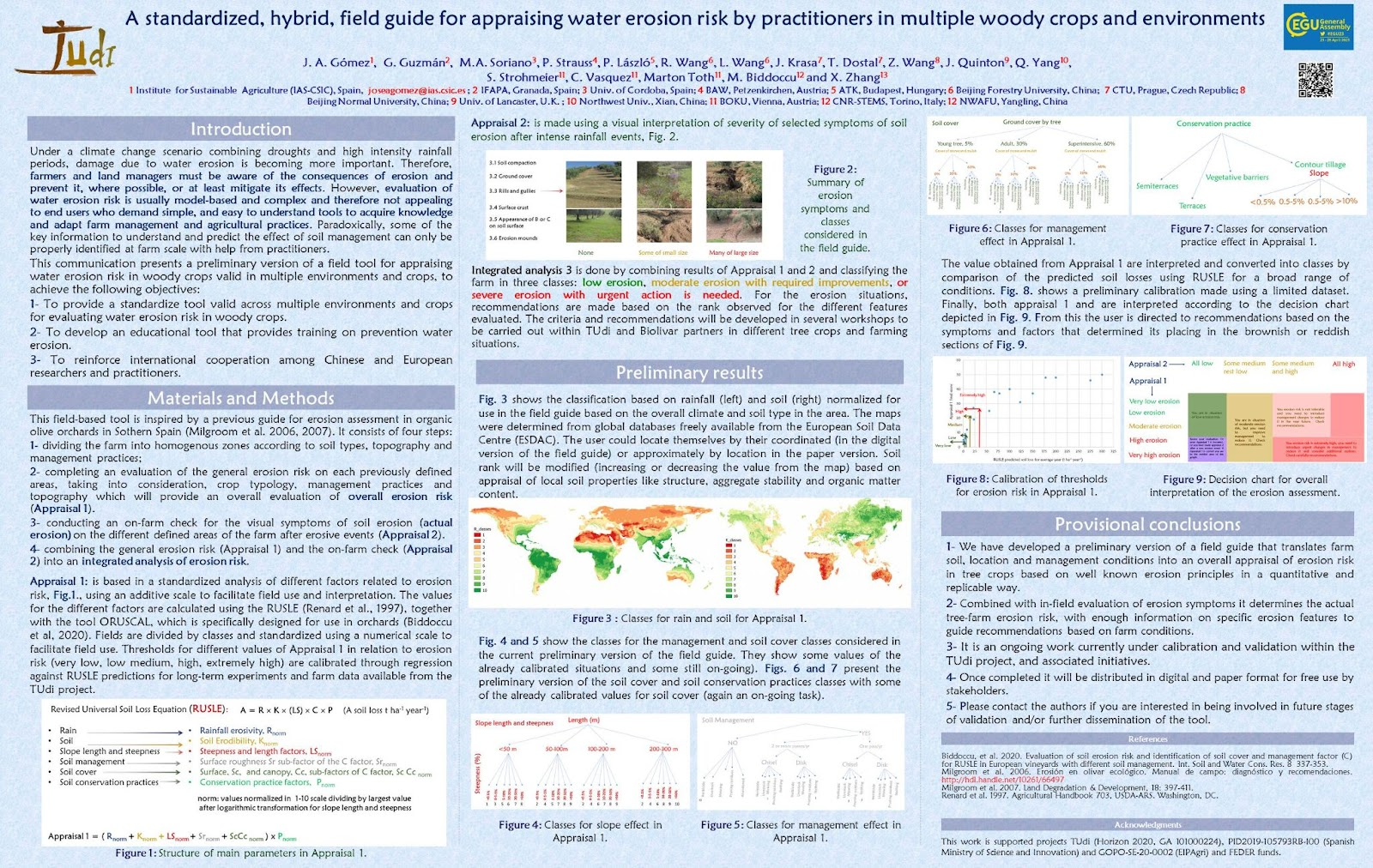
Image: TUdi's scientific poster for EGU 2023
TUdi also had its own session at the conference, called "Challenges in cooperative research between EU-China on sustainable use of soil and water resources in agricultural systems" The session, led by Jose A. Gomez, Paolo Tarolli and TUdi’s Chinese partners Xiaoping Zhang, Xiangzhou Xu, Yang Yu, was attended by around 15 people on site and another 15 online, mainly from China. The session highlighted the importance of international collaboration in achieving sustainable soil and water resource management in agriculture.
Gunther Liebhard from TUdi's Austrian partners, BOKU, presented his research on the "Effect of Inter Row Management Systems on Organic Carbon and Soil Physical Soil Health Parameters in Vineyards." His presentation was part of the session "From Soil Heath to Healthy Food: Soil Management Under Global Change and Human Activities" and was attended by around 60 people. The study quantified the effects of management actions/systems on soil health parameters in vineyards, giving farmers a data basis for decision-making and policymakers a basis for adapting regulation and funding policies.
Dr. Zsófia Bakacsi from the Centre for Agricultural Research (ATK) presented the "TUdi meta-database of long-term monitored farms and experiments to support soil degradation detection," while her colleague Béla Pirkó presented "Comparison of nitrogen use efficiency of manure and inorganic fertiliser based on long term field trials in Hungary." These presentations highlighted the importance of long-term monitoring and experimentation in detecting and addressing soil degradation issues.
Overall, TUdi's project partners made a strong showing at EGU 2023, demonstrating their commitment to advancing sustainable soil and water resource management in agriculture through innovative research and collaboration.
